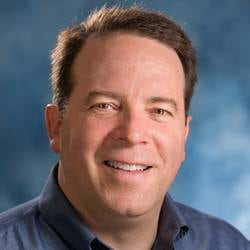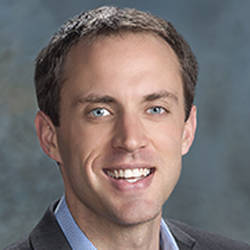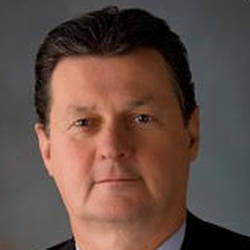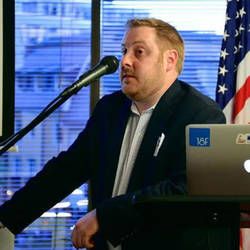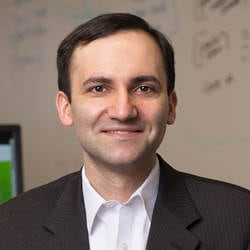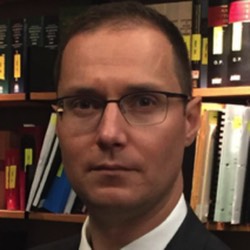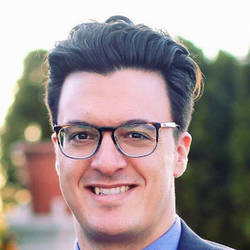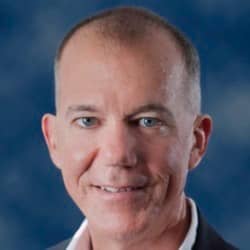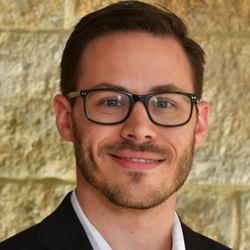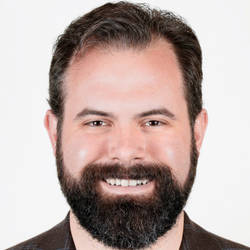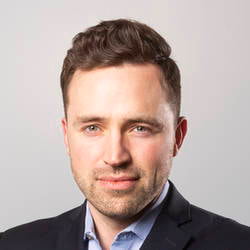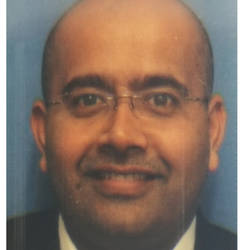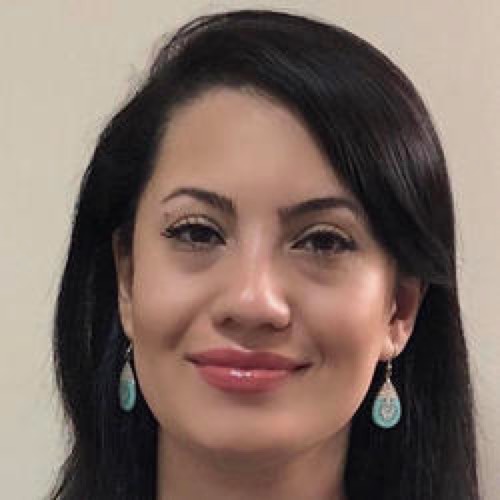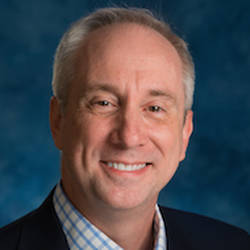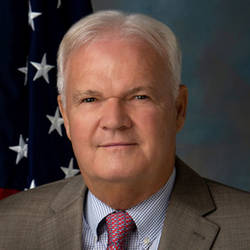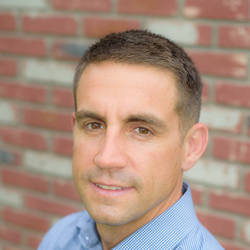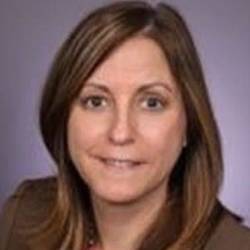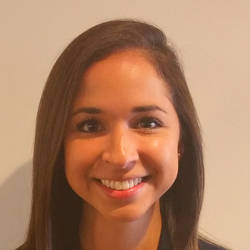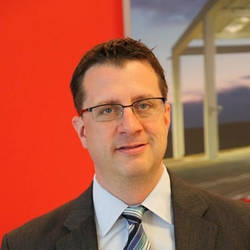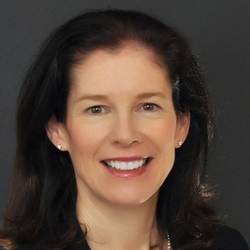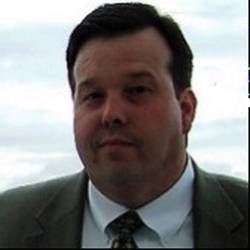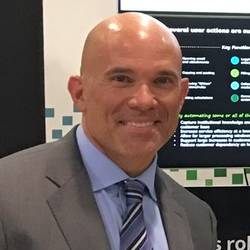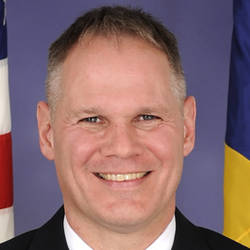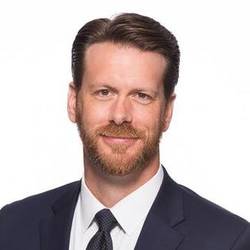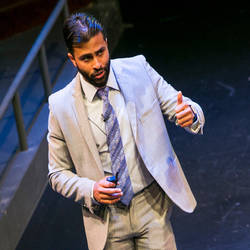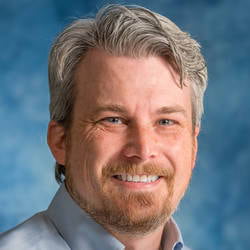Predictive Analytics World for Government Washington, DC 2018
September 17-21, 2018
Pre-Conference Workshop - Monday, September 17th, 2018
This one-day session surveys standard and advanced methods for predictive modeling (aka machine learning).
Predictive analytics has proven capable of generating enormous returns across industries – but, with so many machine learning modeling methods, there are some tough questions that need answering:
How do you pick the right one to deliver the greatest impact for your business, as applied over your data?
What are the best practices along the way?
How do you make it sure it works on new data?
In this workshop, renowned practitioner and hugely popular instructor Dr. John Elder will describe the key inner workings of leading machine learning algorithms, demonstrate their performance with business case studies, compare their merits, and show you how to select the method and tool best suited to each predictive analytics project.
Attendees will leave with an understanding of the most popular algorithms, including classical regression, decision trees, nearest neighbors, and neural networks, as well as breakthrough ensemble methods such as bagging, boosting, and random forests.
This workshop will also cover useful ways to visualize, select, reduce, and engineer features – such as principal components and projection pursuit. Most importantly, Dr. Elder reveals how the essential resampling techniques of cross-validation and bootstrapping make your models robust and reliable.
Throughout the workshop day, Dr. Elder will share his (often humorous) stories from real-world applications, highlighting mistakes to avoid.
If you’d like to become a practitioner of predictive analytics – or if you already are and would like to hone your knowledge across methods and best practices – this workshop is for you.
What you will learn:
The tremendous value of learning from data
How to create valuable predictive models with machine learning for your business
Best Practices, with real-world stories of what happens when things go wrong
Prerequisites:
The workshop is filled with real-world stories and explanations of methods that are visual and analogy-based, rather than mathematical. Each section is designed to make clear the gist of its concept to a complete novice, and to conclude with intriguing ideas for advanced researchers. Experience has shown that attendees who get the very most out of the course:
Have some experience with programming, or algorithmic approaches to problem-solving
Have taken an introductory course in probability or statistics … but most importantly
Have a problem to solve that inspires and anchors their learning as techniques are introduced
Predictive Analytics World for Government - Washington, D.C. - Day 1 - Tuesday, September 18th, 2018
Data science, if judged as a separate science, exceeds its sisters in truth, breadth, and utility. DS finds truth better than any other science; the crisis in replicability of results in the sciences today is largely due to bad data analysis, performed by amateurs. As for breadth, a data scientist can contribute mightily to a new field with only minor cooperation from a domain expert, whereas the reverse is not so easy. And for utility, data science can fit empirical behavior to provide a useful model where good theory doesn’t yet exist. That is, it can predict “what” is likely even when “why” is beyond reach.
But only if we do it right! The most vital data scientist skill is recognizing analytic hazards. With that, we become indispensable.
Want to find out how to optimize the chances of your analytics program succeeding in advancing the mission of your agency or organization? Want to better understand the roles of a CDO and CIO in a real world setting and learn how to better apply innovation practices to drive ROI from your analytics endeavors? Come engage with us on this panel that brings together a highly accomplished set of panelists from various facets of the government and industry and learn about challenges and strategies to better enable your CIO/CDO/CAO suite to drive organizational transformation through data and analytics!
Avoidable hospital readmissions, where a patient was readmitted for reasons later discovered to be avoidable, are estimated to be a $17 billion annual problem for Medicare. Using automated machine learning and open-source software on a public dataset, we show how to quickly compare, tune, and train several models using cutting edge algorithms. Our predictive model can be used to predict patients who are likely to be readmitted, what factors were important, and hopefully help reduce the financial impact of this problem in the long term.
Reducing crime while effectively managing their internal resources is the overriding goal of every municipal police force. Recognizing the value of data, the Toronto Police Service has embarked upon on a data-driven strategy to optimize the level of decision-making in achieving this goal. Tools and solutions utilizing both demographic data from Environics Analytics alongside the Toronto Police Service’s own data provided the capability of building supply and demand models for better allocation of their police resources. Given organizational strategy needs, we also developed a customized territory system that resulted in better assignment of divisions across Toronto.
We present the results of leveraging Apache Spark cluster to process massive datasets using divide and aggregate model, just as we do in resampling methods and cross validation techniques. We present a reusable framework to inject custom models and run the model over numerous disjoint partitions. During the aggregation phase results are obtained using specified aggregation model -- simple averaging or votes mechanism--. We compare results with simple execution model over smaller datasets.
More and more organizations now understand the potential value of analytics but have yet to see any real savings or efficiencies. Some are even standing up their own analytics teams but still have not yet captured any return on investment. An independent analytics assessment helps organizations understand any progress they've made while at the same time exposes opportunities to capture more value quickly by making small adjustments and developing a long-term strategy. In this talk we'll discuss the five most important areas for an organization to assess for unlocking the true value of an investment in analytics.
Big data surveillance technologies are revolutionizing law enforcement. The Rise of Big Data Policing explores how data-driven surveillance technologies impact the “who,” “where”, “when,” and “how” of everyday policing. Professor Ferguson critically examines the future of these digital technologies with particular focus on concerns about racial bias, transparency, and the impact on constitutional rights. Any government agency or official investing in big data predictive analytics needs to understand the legal and financial risks associated with adopting this new management focus. Professor Ferguson will discuss how to avoid several common errors of buying big data tech.
Join us as we prepare an advance analytical workflow that predicts the probability of existing Park & Recreation customers to respond to a campaign they want to implement to increase revenues at the Parks. The session will include importing and preparing several data sources and blending it with other spatial and demographic data. We will also generate an interactive map to help visualize the solution.
By leveraging the Google Cloud services that were originally built to support Google's many billion daily-active-user services, infosec practitioners can analyze OS, network, and application logs at a scale that has previously been cost prohibitive. This talk will cover the architecture of this solution, cloud services leveraged, current analytics, and analytic roadmap.

Join Thomas Davenport as he offers a practical guide to using artificial intelligence for business benefits and competitive advantage. He will cut through the hype of the AI craze and explain how you can put artificial intelligence to work now, in the real world. The business value AI offers is solid rather than sexy or splashy. AI will improve products and processes and make decisions better informed—important but largely invisible tasks. AI technologies won't replace human workers but augment their capabilities, with smart machines to work alongside smart people. AI can automate structured and repetitive work; provide extensive analysis of data through machine learning (“analytics on steroids”), and engage with customers and employees via chatbots and intelligent agents. Government agencies should experiment with these technologies and develop their own expertise. During this session, Tom Davenport will describe the major AI technologies and explain how they are being used, reports on the AI work done by large government agencies, and outline strategies and steps to becoming cognitive.
We have assembled a medallion set of panelists and industry luminaries to help you understand the tactical aspects of deploying analytics and machine learning to optmize your organizational processes and drive increased efficiences. If your organization or agency is looking to better measure the operational impact and ROI of your analytics initiatives, understand some of the biggest spending drivers when it comes to Analytics programs or simply enable a direct line of sight between your organizational data assets and organizational strategies, this is the panel for you.
Graph methods provide a powerful way to represent a network of objects and the relationship or connections between them. Examples include power grids connecting cities, social networks that connect users, and traffic systems connecting roads. The study of networks has also emerged as a means of analyzing complex financial transactions, including those in tax administration. In addition to graph databases for interactive visualization, a diverse set of approaches exists for graph mining, including subgraph discovery and anomaly detection. The continued maturity of tools like R, Python, and Spark, along with distributed computing frameworks, has provided new opportunities to apply graph methods for a wide range of business problems—including those involving massively large data sets. This case study provides a glimpse of how a variety of graph-based approaches are being used at the IRS and discusses lessons learned, business impact, and future direction.
The difficulty of implementing a new data initiatives often goes under-appreciated, particularly the challenges facing most organizations. Deficiencies in organizational readiness and core competence represent clearly visible problems faced by data professional, but beyond that there are common cultural and structural barriers that must be eliminated in order to leverage data effectively. This talk will discuss these barriers—the titular “Seven Deadly Data Sins”—and in the process will also:
- Elaborate upon the three critical factors that lead to data initiative failure
- Demonstrate a two-phase data strategy implementation process
- Explore the sources and rationales behind the “Seven Deadly Data Sins,”
and recommend solutions and alternative approaches
In this manner data investments can be more accurately focused on your organization's strategic priorities. Only when past the prerequisites, can organizations develop a disciplined, repeatable means of improving the data literacy, processes, and supply - the three key elements required to improve data support for strategy. Think of it as a repeatable process for identifying and removing data constraints.
By slowing down and circling around in order to decipher parking signs and avoid tickets, drivers in major cities such as San Francisco cause a lot of traffic jams. These behaviors can potentially endanger the safety of pedestrians and represent a threat on the transportation environment.
We exploit deep learning techniques to predict parking signs from street-level imagery and find their actual location on a map. Multiple APIs are applied to read and extract the rules from the signs. The resulted map of digitized parking rules along with driver\'s GPS information are used to build products that facilitate parking.
Predictive analytics and choice architecture (“Nudge”) are commonly discussed as separate topics. But they are best viewed as complementary disciplines. Insights from the behavioral sciences can often play a helpful – sometimes indispensable – role in deriving economic or societal benefit from an algorithmic solution. And conversely, big data can help identify whom to nudge, when, and how. This session will introduce choice architecture, sketch a framework for data science and behavioral science acting as complements, and present a case study that involves lessening improper payments in the public sector.
Pharmaceutical industry operations are a complex network of interrelated business entities. There is an opportunity for fraud at each stage in the manufacturer/supplier-to-prescriber-to-dispenser-to-consumer distribution chain, and there are many known fraud schemes. We focused on the prescriber-dispenser-consumer end of the chain, and in particular, on schemes involving controlled prescription drugs.
Creating features from heuristics (domain experts) and deduction (graph analytics), which we employed in machine learning models, we developed a tool that can detect prescriber fraud schemes such as collusions, negligent prescribing and pill mills.
We all tend to think our newly-minted models are well-designed, based on expert knowledge, and acme's of predictive power. Experience, however, teaches us that models won't perform as well in production as their initial promise might indicate. This course will walk through the approaches we should take to model testing in order to have the best idea of how well they will perform in the real world, and to be confident that they will serve their purpose. Topics will range from hold-out test sets and cross-validation, to target shuffling and posterior predictive checks, as well as leaks from the future.
Predictive Analytics World for Government - Washington, D.C. - Day 2 - Wednesday, September 19th, 2018
The session will focus on the challenges and opportunities that the digital age and globalism have created for governments. The new technologies of the digital age have enabled an explosion of innovations, which have in turn greatly changed human behavior. The new behaviors and technologies are no longer served by organizational and governance models configured for the industrial age. We are awaiting new organizational designs. Meanwhile, the government is also lagging behind the rapid advancement of technology with policies and controls needed to manage the impacts and unintended consequences of the digital global era
Government by nature is in the data collection business, and there is no shortage of information from which to extract valuable insights. The challenge is to reinvent how to leverage the vast amounts of information to get real results. Emerging next-generation tools include predictive analytics, big data analytics, data visualization, cognitive technology and more. This session explores better ways to tap your data to drive smarter decisions, faster responses and better service.

Government organizations of all types and sizes struggle with recruiting and retaining talent throughout their ranks. From resume screening to retainment bonuses, there is no shortage of decisions to be made throughout the life cycle of an employee. Recent advances in Automated Machine Learning (AML) have enabled human resource managers to make these decisions in a more data driven manner. The ability to automate much of the technical overhead preventing human resource managers to implement predictive analytics themselves has largely been removed. This presentation will summarize the major opportunities for predictive analytics in the human capital space, share some lessons learned from implementing AML in support of workforce analytics, and provide keys to success for implementing AML for departments new to predictive analytics.
Governments around the world are experimenting with viable public sector applications of blockchain technology, prioritizing internal operations and citizen services over the cryptocurrency space. Over the last year, the Bureau of the Fiscal Service has been pioneering potential non-crypto applications of blockchain within the US federal government. This has led Fiscal Service on an insightful journey to learn about the challenges and the opportunities regarding the use of blockchain in the current government IT environment. This session will discuss how to embark on a blockchain journey and lessons learned over the last year as Treasury moves from idea, to proof of concept, to pilot.
At the NFA, a regulatory body for the US derivatives markets, we have thousands of firms to monitor, but limited resources to do so. Over the past 4 years we have built a predictive modeling program to help solve this problem by identifying which firms pose the most risk. Over this time we have learned many important lessons, and the most important ones have little to do with picking which algorithm to use. This session will discuss practical tips that data scientists can apply to their own modeling projects covering model construction, model evaluation, data integrity, and others topics.
Chief Data Officers (CDOs) can be significant change agents in advancing data driven culture in a government agency. This session shares insights from a recent publication about CDOs in the federal government, featuring 5 case studies of success. Hear from the author of the paper and from one of the CDOs featured in the paper, Kris Rowley CDO at GSA.
Mitigating fraud and identifying emerging risks are common but complex problems and require a comprehensive and flexible semi-supervised analytics solution. Organizations can be anywhere along the broad spectrum of analytics capabilities, from basic rules and reporting to complex network graph analysis. This talk will describe the essential structure and components of a holistic analytic system that successfully identifies and ranks emerging threats, based on years of experience building fraud and risk models.
Robotic and Intelligent Automation combines technologies including robotic process automation, machine learning, intelligent OCR, and predictive analytics to automate processes. These technologies comprise a ‘digital workforce’ that when integrated with the physical workforce create the ‘total workforce’ of tomorrow.
The technologies within Robotic and Intelligent Automation can be applied collectively or separately as determined based upon on the nature of your business problems. A potential application of Robotic and Intelligent automation relates to enhancing spending power by monitoring personnel charge card use patterns for instances where charge cards are being used out of line with agency policy.
Come join this Lunch and Learn session to learn more about what Robotic and Intelligent Automation is, where integration opportunities lie within the public sector, and how to get started.

Want to better understand how to employ the power of cutting edge AI technologies like Machine Learning, Natural Language Processing, Robotic Process Automation and even explore Blockchain technologies to drive innovation and advance the maturity of your organization? Come hear our panelists speak about how they are leveraging these AI capabilities to transform programs at their organizations, reduce the cost of decision making and decrease the speed of decision making. Understand use-cases for various AI technologies and develop an understanding on how to incubate and innovate!
The world is rapidly changing and data science is at the forefront. Our data can enable better decisions, improve service and even save lives, but it must be enabled.
In this session, participants will receive numerous insights into the power of predictive analytics and learn ways to apply these powerful technologies in their own agencies.Come join us for this fun and informative session!
Post-Conference Workshop - Thursday, September 20th, 2018
This one-day session reveals the subtle mistakes analytics practitioners often make when facing a new challenge (the “deadly dozen”), and clearly explains the advanced methods seasoned experts use to avoid those pitfalls and build accurate and reliable models.
This workshop covers:
Antidotes: the best practices that overcome the most common flawed practices
Intuitive explanations of resampling methods that ensure your models work on new data
Practical tips for both the hard and the soft skills that will see your project through to implementation
In this workshop, renowned practitioner and hugely popular instructor Dr. John Elder will survey the most advanced analytics tools in the practitioner’s toolkit, with particular emphasis on resampling tools – such as cross-validation and target shuffling (a method to avert p-hacking devised by Dr. Elder) – which reveal the true accuracy of your models.
Workshop topics also include visualization, feature engineering, global optimization, criteria of merit design, ensembles, and “soft” factors that affect success, such as human cognitive biases. Attendees will also leave with an understanding of the inner workings of the most popular algorithms – including regression, decision trees, nearest neighbors, neural networks, bagging, boosting, and random forests.
Throughout the workshop day, Dr. Elder will share his (often humorous) stories from real-world applications, illuminating the technical material covered.
If you’d like to become a more expert practitioner of predictive analytics, this workshop is for you.
What you will learn:
The 12 subtle pitfalls to watch out for on any new project
The latest ways to increase the value of predictive models and machine learning for your business
How to succeed when your biggest threat is not technology, but people (e.g., resistance to change)
Prerequisites:
The workshop is filled with real-world stories and explanations of methods that are visual and analogy-based, rather than mathematical. Each section is designed to make clear the gist of its concept to a complete novice, and to conclude with intriguing ideas for advanced researchers. Experience has shown that attendees who get the very most out of the course:
Have some experience with programming, or algorithmic approaches to problem-solving
Have taken an introductory course in probability or statistics … but most importantly
Have a problem to solve that inspires and anchors their learning as techniques are introduced
Post-Conference Workshop - Friday, September 21st, 2018
This 1-day workshop is an introduction to data science for executives and managers of data science programs. It provides a high-level overview of modern data science concepts, tools, and techniques from a management perspective. All stages of the data science lifecycle will be discussed in the context of agile management methodologies using real-world case studies. Managers will learn how to identify skilled data scientists and build data science teams that use sound scientific methods to meet their organization’s objectives. Leaders will learn to ask the right questions, solve the right problems, keep data science projects on track, ensure their solutions are deployed and avoid common pitfalls along the way. Both technical and non-technical participants will benefit from this workshop and be equipped with the knowledge necessary to lead effective data science programs in their organizations.

